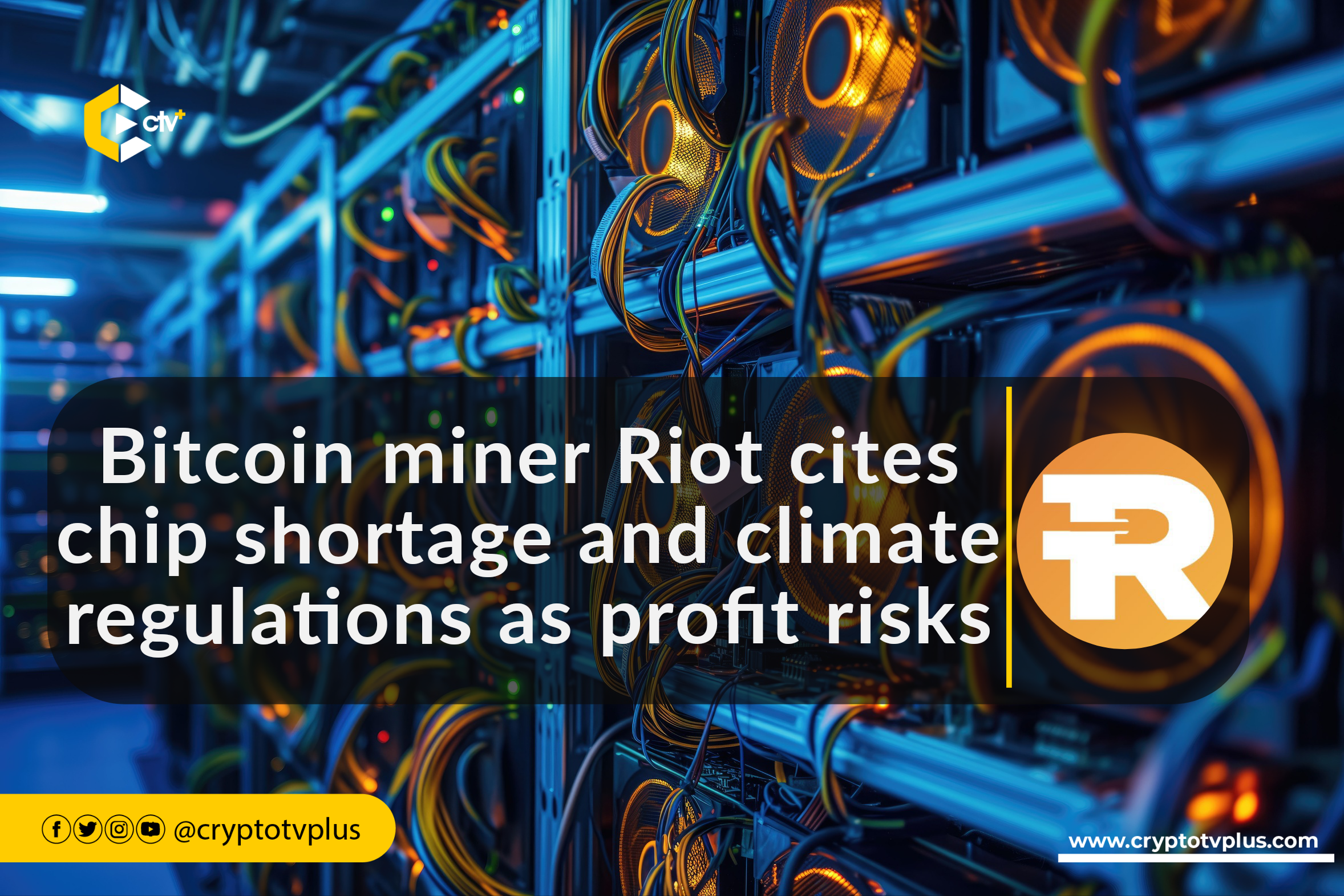News
Bitcoin miner Riot cites chip shortage and climate regulations as profit risks

Chip shortages and new climate-focused regulations posed the main risks to Riot’s profits, as stated by the Bitcoin miner.
Riot Platforms, in its risk disclosures, anticipated continued high costs for ASIC miners until the chip shortage was resolved.
In its latest annual report, Riot Platforms outlined the ongoing chip shortage, the need to scale up hash rate, and stronger pro-climate regulations as potential impacts on its balance sheet.
Riot identified over 13 key risks in its 10-K annual report, including the current global shortage of specialized ASIC chips crucial for Bitcoin mining.
“The ongoing global supply chain crisis, coupled with increased demand for computer chips, has created a shortfall of semiconductors,” Riot said, which could impact its mining operations over the long term.
In December, Riot agreed to buy 66,560 ASIC miners worth $291 million from MicroBT, marking its largest hash rate purchase, said CEO Jason Les.
The company expected to pay higher mining machine costs until the chip shortage was resolved, according to its 10-K annual report.
While Riot had access to ASIC miners, it faced risks of “design flaws” that could affect its mining operations.
Adapting ASIC miners to immersion-cooled environments posed challenges due to software and firmware issues, as Riot experienced in the past.
Riot aimed to increase its hash rate to maintain market share despite growing competition in the cryptocurrency mining industry.
“To compete in this highly competitive industry, we believe we will need to continue to acquire new miners, both to replace those lost to ordinary wear-and-tear and other damage and to increase our hash rate to keep up with a growing global network hash rate.”
Bitcoin’s potential scaling obstacles could hinder its widespread use as a payment method, Riot noted.
A decrease in Bitcoin demand might lead to price declines, impacting Riot’s financial position.
Environmental focus by U.S. and Texas governments could also present challenges for Riot, the company acknowledged.
“New legislation and increased regulation regarding climate change could impose significant costs on us and our suppliers, including costs related to increased energy requirements, capital equipment, environmental monitoring and reporting, and other costs to comply with such regulations.”
Stricter regulations in the U.S. compared to other jurisdictions might disadvantage Riot, the company warned.
A U.S. District judge ruled in favor of Riot and the Texas Blockchain Council(TBC) in a lawsuit against energy officials over alleged invasive data collection from crypto miners.
In 2023, Riot’s Bitcoin production rose by 19%, yielding a total of 6,626 BTC valued at about $341.4 million at current prices.
Riot’s average cost to mine one Bitcoin dropped by 33% to $7,539 in 2023, according to the company.
Read also: Ethereum Foundation alongside zkSync allocates $900K for ZK Layer 2 development

















Pingback: Russian Parliament advances legislation to enable digital assets in global payments | CryptoTvplus - The Leading Blockchain Media Firm